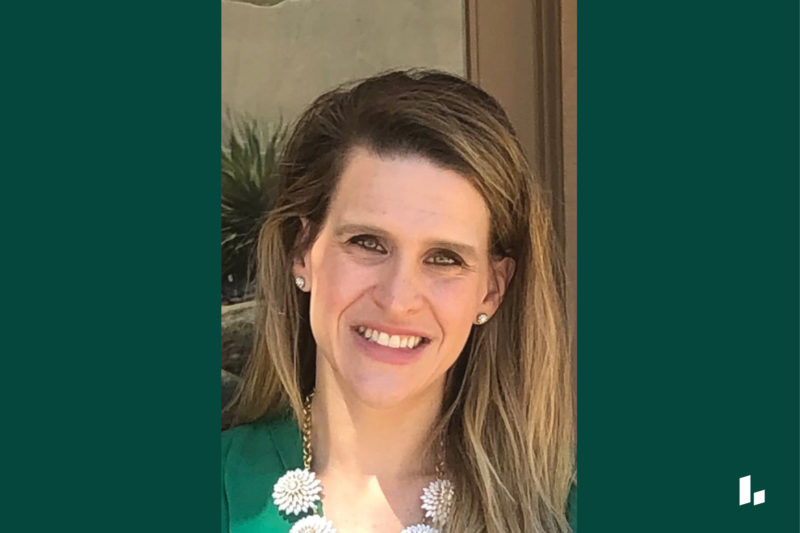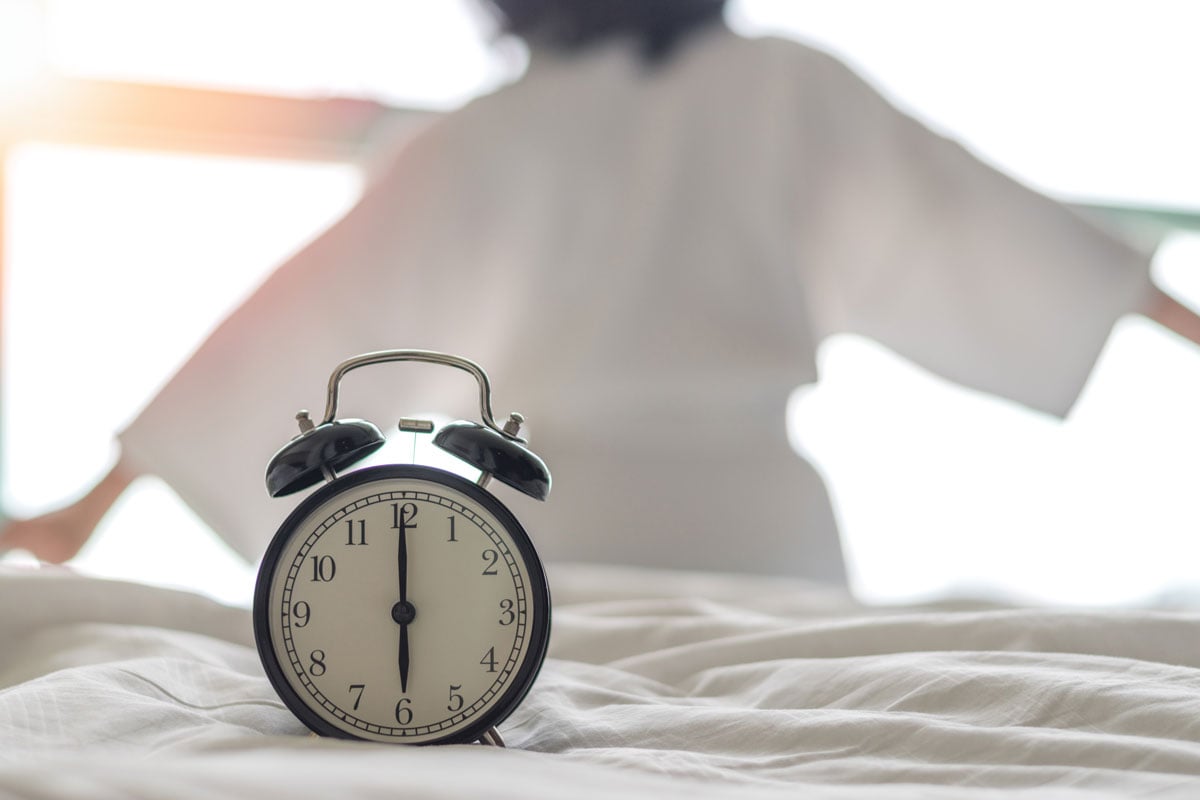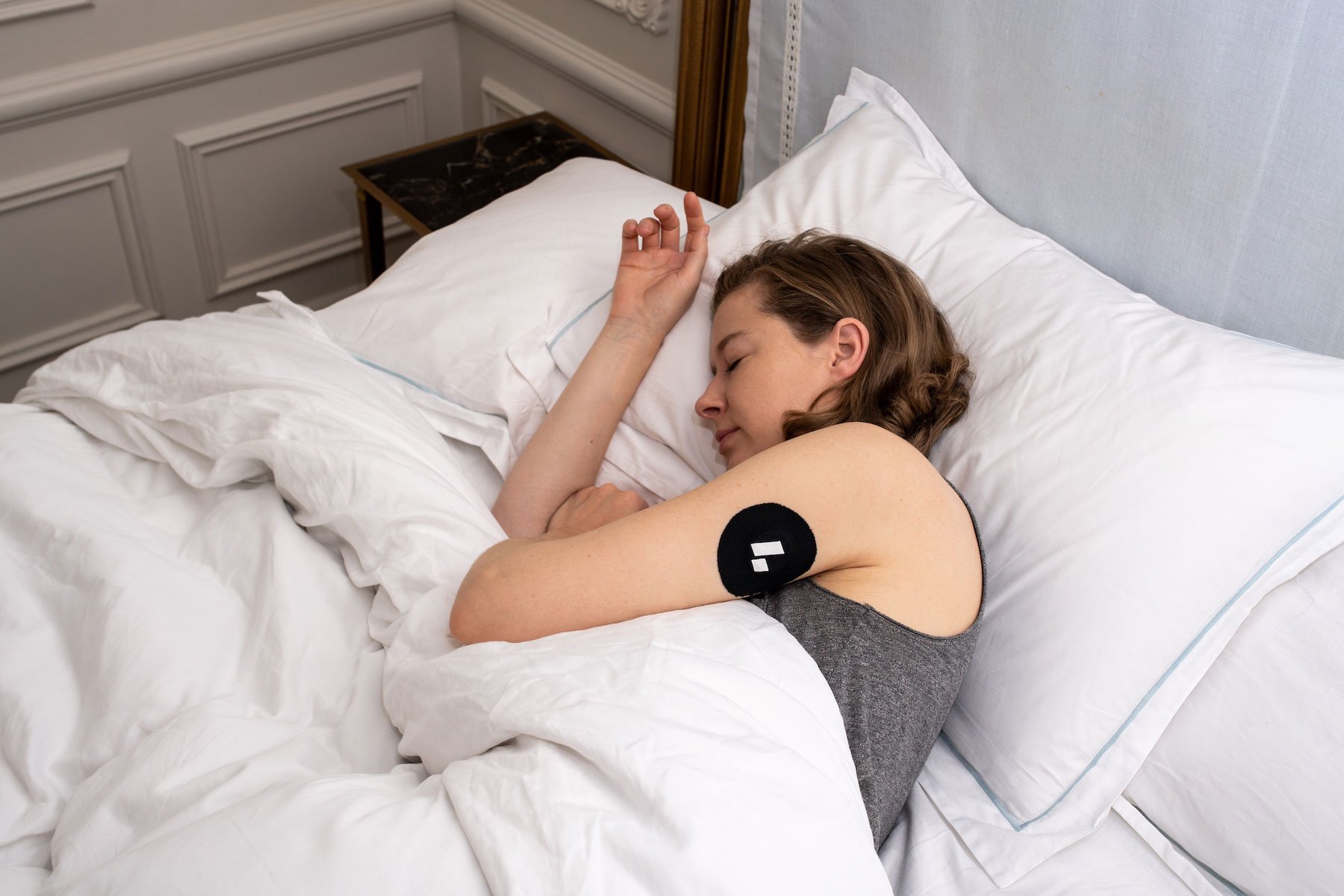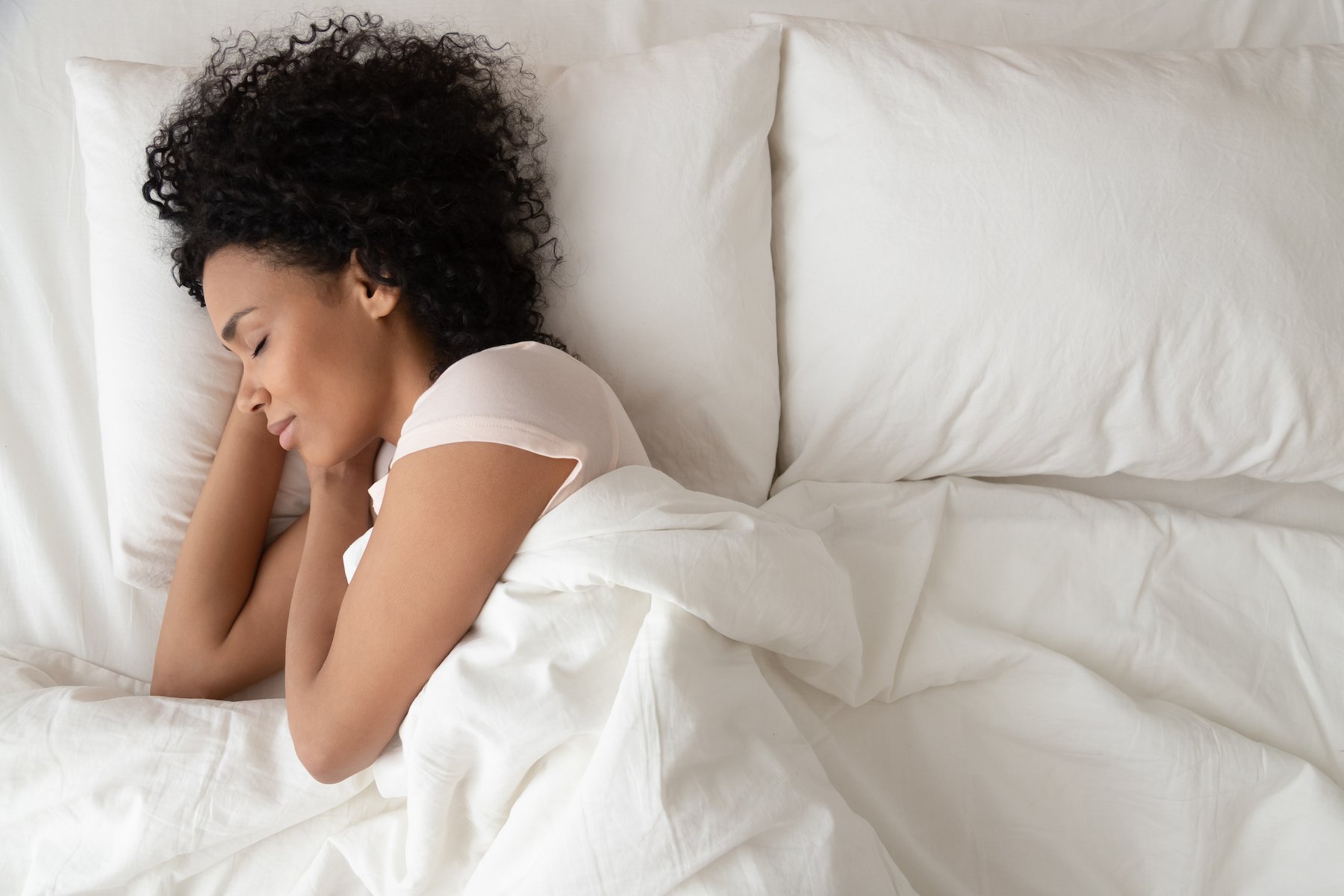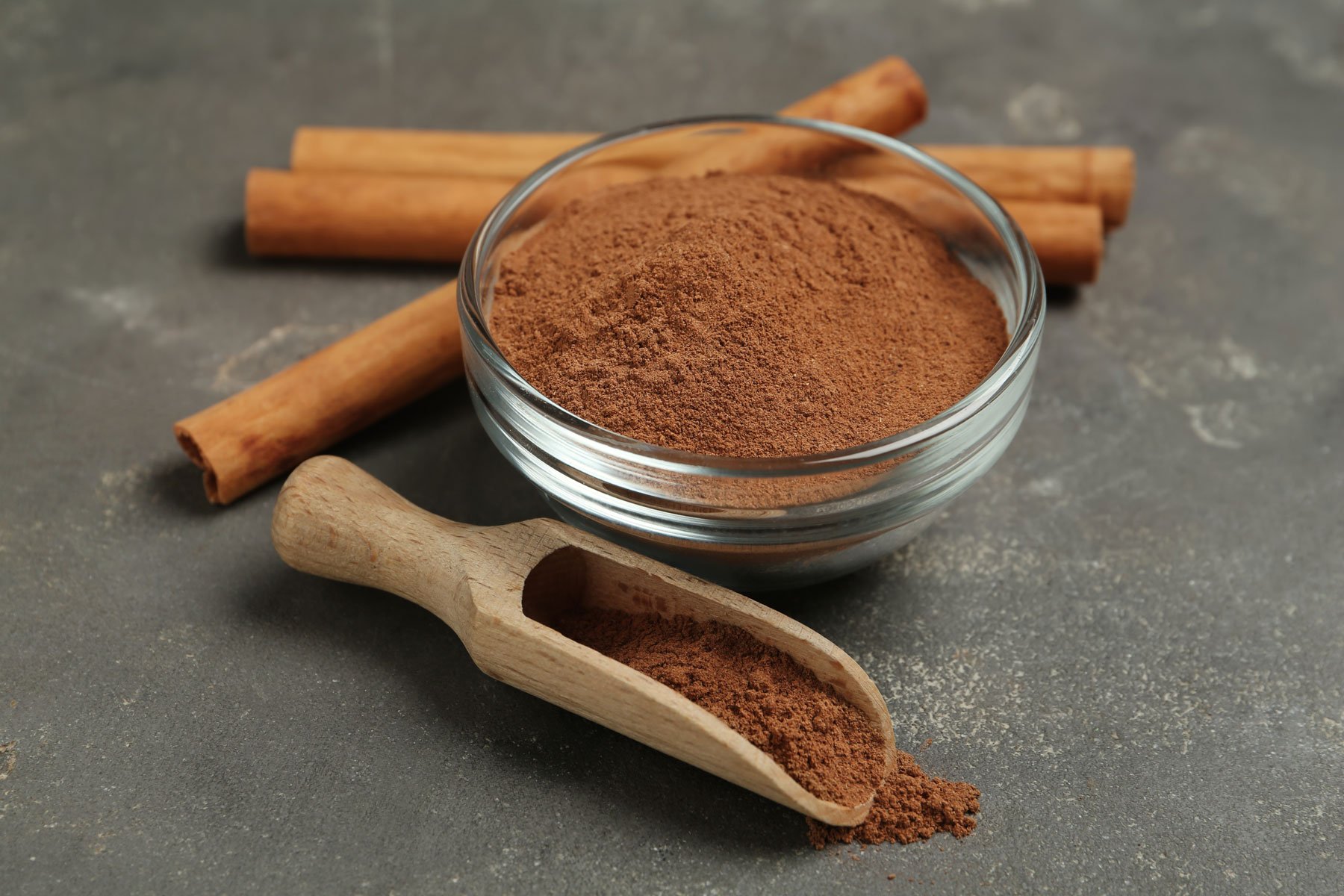The goal of a good night’s sleep may be the same, but the methods to get there are different for everyone, says Jenna Gress-Smith, PhD, a clinical psychologist and owner of Arizona Sleep & Health in Phoenix. She’s also a sleep health expert with Bioloop, a company that offers personalized sleep coaching and programs, leveraging the data from devices like Oura ring to optimize and improve your sleep health.
Sleep and metabolic health are intimately intertwined. Emerging research shows that sleep-deprived individuals are less efficient at clearing sugar out of the bloodstream and secrete higher insulin levels. Ultimately, poor sleep is linked to an increased risk of Type 2 diabetes. The journey towards better sleep is an ongoing process—and it takes work.
“So many factors can influence our sleep for better and for worse. We want to harness it for the better,” she says. Here, Gress-Smith talks about the value of recruiting a sleep coach, enhancing sleep quality, and the shut-eye myths that we just can’t seem to shake.
Bioloop is focused on sleep coaching. What is the value of partnering with a sleep coach?
The things that we need to do to change our sleep patterns are not complex, but they’re not always intuitive. Accountability and coaching always help increase our performance. That’s true whether we’re getting a trainer for a marathon or to learn to lift weights. Sleep is such a vital part of our health; it makes sense to have a sleep coach. Once people understand the science behind their sleep and how big of an impact their thoughts and behaviors have on their sleep, they start to gain the momentum they need to start making changes. In today’s tech-focused culture, a sleep coach can be the bridge in taking your wearables data and transforming it into actionable behavior change aligned with your sleep health goals.
What does the relationship between a sleep coach and client look like?
When it comes to sleep, we know that quality and quantity are important goals to have mutually. We don’t want to simply aim for eight hours. We want it to be restful, quality sleep so that you wake up and feel refreshed. The coach helps people dissect their current sleep and health patterns to form a chain of specific goals to get them to that end goal. There are many things that we do behaviorally during the daytime that can screw up our night. The sleep coach can provide the skills, support, and accountability you need to reach that end goal.
You’ve said that some of the behavior changes to improve sleep are counterintuitive, which makes having a sleep coach who can walk you through these changes even more helpful. What are some of these counterintuitive changes?
In populations with insomnia, we notice that reducing the time in bed to match actual sleep time (called sleep restriction therapy) is one of the most robust behaviors that helps insomnia and poor sleep. I think it’s counterintuitive because when you have a rough night—and I’ve gone through this, too—there’s this thought that you should go to bed earlier the next night or sleep in on the weekend. But ultimately, we only want to be in bed when we’re sleeping, not when we wish we were sleeping. If we do that repetitively, it makes fragmented sleep worse. Not staying in bed too long awake is one behavior that can be influential on your sleep.
At Levels, we often hear about how the blood sugar response to the same foods depends entirely on how well someone slept. How much do you work with your clients about diet, the timing of eating, and the quality of overall nutrition related to sleep?
I think that’s an essential thing and an opportunity for growth. Looking at the diabetes population, we know that the association between poor sleep and dysregulated blood sugar on a day-to-day basis is overwhelmingly clear.
We know that our circadian rhythm that houses the sleep-wake cycle houses the digestive cycle. It’s just not helpful to be eating late at night or out of sync with your circadian rhythm because your body is not processing the food at the same rate, which can cause digestive discomfort.
What have you learned in working with different populations through Bioloop that’s surprised you?
One thing that surprises me in every setting that I’m in, whether it’s in the hospital, my clinical practice, or Bioloop, is the misinformation about sleep. People have personal beliefs that they hold very dear that drive poor behaviors and generalized distress about sleep. I’ve even heard them delivered by physicians in primary care. Those include that you need eight hours of sleep, that REM is the deep sleep, or that middle-of-the-night wake-ups mean your night is ruined.
Can you expand on those sleep myths?
Number one sleep myth is that eight hours is best—or that you have to aim for a certain number of hours. The reality is that we need to hit that sweet spot of quantity and quality.
Another is that sleep remains consistent across the lifespan. Just as the rest of our body ages, it cannot generate sleep patterns in the same way. As a result, the amount of sleep we need decreases over time. I think some people get caught up in wanting what they had in the past, and that desire causes a lot of worry for folks.
Then, there’s knowledge about REM sleep. REM is a vital part of our sleep cycle. It’s critical for cognitive abilities and energy, but REM is not our deep sleep. It’s so shallow that if you had a sleep technician looking at your brainwave patterns, they wouldn’t be able to tell if you were awake or asleep. On the other hand, deep sleep is characterized by delta waves, which are these big, slow, undulating waves that occur in the first half of the night.
Alcohol helping with sleep is a very pervasive myth, as well. There may be an initial sedating effect of alcohol, but it leads to fragmentation in the second half of the night.
Lastly, there’s the myth that you have to sleep solidly throughout the night. As long as these awakenings are not prolonged, it’s normal. But what happens is that when you think that they’re harmful, your mind goes into a stress cycle in the middle of the night, which impacts your sleep.
You often talk about quality of sleep. What can we do to improve that quality?
One is to make sure that our quantity is aligned with our circadian rhythm. If I go to bed much later than usual, but I still sleep my average seven hours, I might cheat myself out of some of the needed sleep stages than if I went to bed at a time more aligned with my circadian rhythm.
Another thing that I’m experimenting with on my own is looking at what we can do to facilitate our body’s physiological relaxation to help us glide into deep sleep stages, which occur during the front end of the night. These things might include diaphragmatic breathing, body scans, or progressive muscle relaxation, which influence our relaxation response. Doing those before bed could probably help optimize sleep, but we need to collect more data before I say that with utmost confidence.
Speaking of aligning your bedtime with your circadian rhythm, how do you know where your circadian rhythm falls?
Bioloop does a great job of doing assessments to see what your chronotype is. Are you more of a night or morning person? People get into some trouble when their functional life doesn’t line up with their chronotype. For example, if you’re a night owl, but you have to be at work at six a.m., that’s a mismatch. There are things you can do to retrain your circadian rhythm to optimize it for your life window.
However, the general recommendation is that if your life can accommodate it, you should work within your circadian rhythm. Get in touch with the timing of true sleepiness and develop a sleep schedule within that. For example, if you fall asleep quickly, you are probably too tired and may need to go to bed earlier.
You must have good sleep habits now. Have you always had healthy sleep habits?
My entire life, I’ve had sleep issues. It wasn’t until I was in my mid-to-late-twenties in the Department of Psychiatry and Behavioral Sciences at Stanford University that it became clear that I have a very fixed night-owl tendency. It kept getting in the way of getting up for school. After implementing tools from CBT-I (cognitive behavior therapy for insomnia), I sleep reasonably well, but I still have fluctuations in my sleeping patterns. I have to catch myself and put myself back on course.
I’m sensitive that even if you use the tools, it’s not a permanent fix to your sleep forever. Good sleep habits are a regular part of our health that we need to work on. That’s another reason why I think coaching is so important.
